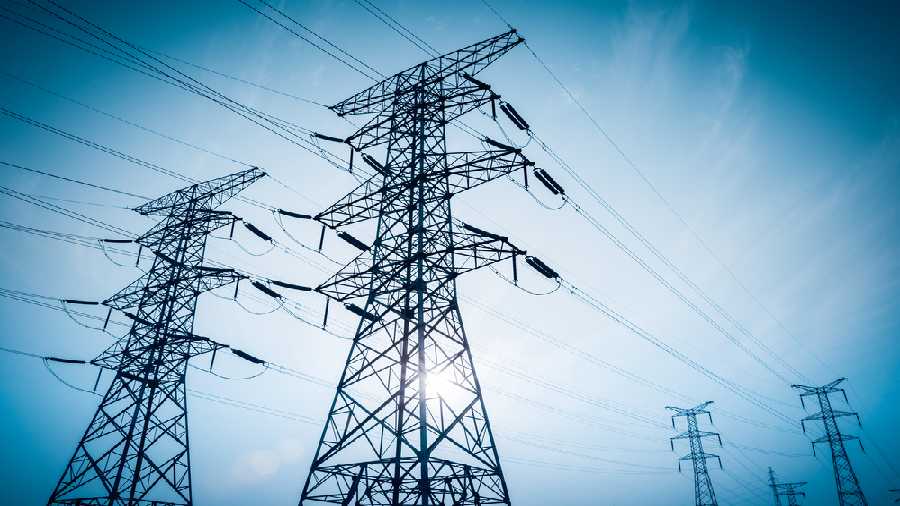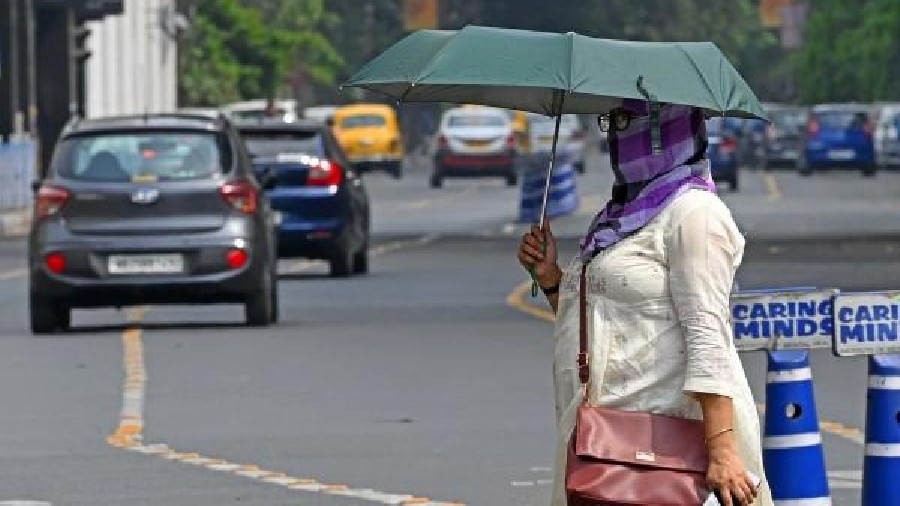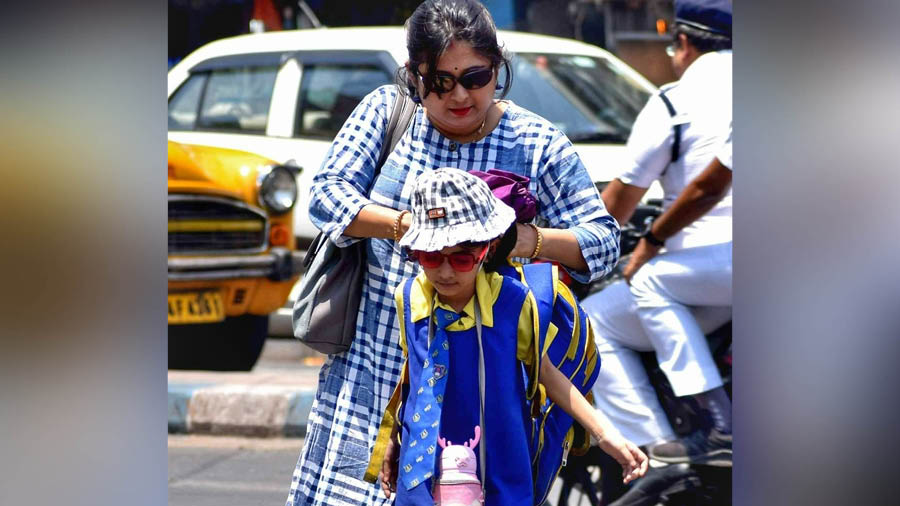A number of Kolkatans have complained of long power outages in the city over the past few days as the temperature kept soaring.
A tweet from Aritra Bhattacharjya at 9.14am on Sunday said: “Almost 9 hrs has passed, we are facing a power cut in such a fatal summer season, no response from cesc side. Complain number 04230xxx762. There is a person with medical issue.”
A counter-tweet was posted from the CESC handle at 3.40pm saying they tried to reach the person on his cell number but the call was not answered. The tweet also mentioned that the power supply had been restored.
Another Kolkatan shared his plight on social media and tweeted at 10.24am on Sunday saying his neighbourhood faced a power cut from 11pm. All residents, the tweet said, were forced to be on the road for four hours. “3 CESC vans came, couldn’t repair, engineer is arriving since forever. Every year same issue, transformer burst, pole burst, horrible voltage down in summer, AC not working, got damaged.”
Tiyash Barman wrote on her Twitter wall at 10.34am on Sunday: “Power cut from 12am to 6am on 16th April, ‘23. Again power cut from 7.45am to till now. No positive feedback from CESC.”
Santosh Kumar Singh tweeted at 12.35am on Sunday: “We are having power cut at 11pm and today there is no one to attend... I have a senior citizen at home not getting any response for last two hours.”
At 8.53am on Sunday, CESC responded to the tweet saying the supply had been restored.
Areas like Picnic Garden, Bondel Gate in south Kolkata and Lake Town in the northeast were most affected.
A 39-year-old man, who stays in a rented apartment near No. 39 bus stand in Picnic Garden, said his area suffered power outages for two consecutive nights. “At my apartment, the power went off around 9.30pm on Thursday and Friday. It came back after a couple of hours on both days,” he said.
There was no intimation from the service provider, he said.
Residents of areas where power is distributed by the West Bengal State Electricity Distribution Company Limited (WBSEDCL) are also suffering power outages.
Mithu Basak, a resident of Hatiara in northeast Kolkata’s Baguiati, said: “We had a power cut early on Saturday for close to 40 minutes. Initially, we did not realise as the room was cool because the AC had been on. But in 10 minutes, the heat became unbearable.”
“On Wednesday, too, there was a power cut in the afternoon. In fact for the last few days, the voltage has been low and fluctuating. If it is low in the evening, we cannot turn on the AC,” she said.
Arundhati Chakraborty, a resident of Jyangra Jora Mandir, said they had power outage for two days last week.
“On Friday, there was a power cut from 3pm to 5.30pm and on Saturday from 10am till noon. There was no prior information about the outage,” she said.
In the CESC area (in and around Kolkata), the peak demand soared to 2,180MW on Saturday, the highest this season.
However, the private distributor handled a higher peak demand last year (2,339MW).
CESC, which supplies electricity to about 3.55 million consumers within an area of 567sq km, has its own generating capacity of 1,487MW.
The company buys from other utilities and power exchanges to meet the demand surge, like the one experienced on Saturday.
The company said it is confident to meet even higher demand than what was experienced last year with ease. Asked specifically about two localities, Picnic Garden and Lake Town, the company said it had no knowledge of any large-scale outage or voltage fluctuation.
“We have invested heavily over the years to strengthen our transmission and distribution network to ensure predictable and continuous supply of electricity,” said Debasis Banerjee, managing director (distribution), CESC.
While there are multiple factors which lead to outage or voltage fluctuations, two primary reasons are power theft (called “hooking” in local parlance) and overdrawing of electricity without informing the supplier.
For example, a consumer may simultaneously be running multiple appliances with high power consumption (say, three air conditioners) in a single phase 230V line exceeding his/her sanctioned load, putting stress on the network. If the distributor was informed, it would have arranged for a higher load, which means bulking up the back-end to avoid stressing the network that could cause tripping or voltage fluctuation.
In the case of hooking or unauthorised withdrawal of electricity, local issues like wiring problems in a house or a locality can lead to voltage issues
CESC said it had been able to tackle both issues. Given that more than 90 per cent of the consumers are serviced via underground networks, the chances of hooking are minimal. On the outskirts, where there are overhead lines, the utility has used specialised cable to prevent theft.
Besides, the distribution network has been designed in a way to contain outages within a local area. With the technological intervention, multiple checks have been installed to prevent cascading effects. Sensors have been installed in transformers across strategic locations to assess the health of the grid and take preventive measures.
“There has been no shortfall in supply compared with the demand. Outage complaints, only a handful of them, have emerged on account of localised faults, in very small pockets. Those have been dealt with on a war footing,” said a source at WBSEDCL, the state-run distribution utility, referring to the parts of Kolkata and its neighbourhood that it handles.
“The situation is quite far from being out of control, despite the severity of this summer,” he said.



